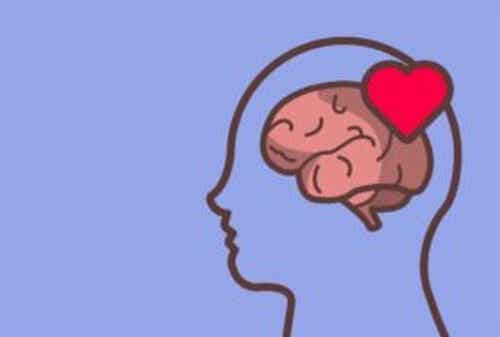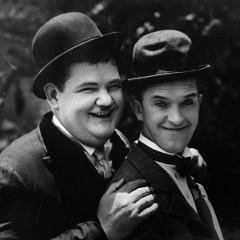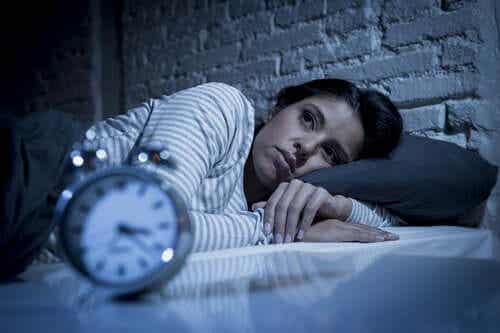White noise has received a lot of attention lately as a means of improving our concentration. But what do we know about it?

Last update: April 01, 2020
More and more people are witnessing the benefits of white noise. They ensure that it promotes relaxation and meditation, thus improving concentration and cognitive abilities. In particular, it affects its application in order to help reconcile and maintain the state of sleep. It is used with both adults and children.
It seems, therefore, that parents use white noise to calm their little ones and to improve the quality of their sleep. According to their testimonies, in fact, this noise stimulates a relaxing environment, ideal for sleeping better. But can white noise really help us sleep better?
If so, we would find ourselves in front of the solution for people suffering from sleep disorders, increasing. We invite you to read this article to find out more.
What is white noise?
Like light, sound can also represent ghostly graphics. Thus, since white is the sum of all other colors, white noise integrates the entire spectrum of existing sound frequencies. Moreover, it does so in a harmonious way, so that no sound prevails over the other.
The result is a smooth, consistent sound, similar to what an untuned television or radio can produce. A background murmur like that emitted by some appliances in operation, such as the washing machine or the hairdryer. Or it is comparable to the natural sound of rain or wind.
How does white noise help us sleep better?
The main positive effect of white noise on our sleep comes from its ability to mask other sounds. In this way you avoid blowing up due to traffic, work in progress or any other stimulus that may disturb.
The relaxing effect that is produced can offer particular benefits to newborns, and, in general, to light sleepers. Thanks to white noise, the rest of the sounds are obscured (or perceived with less intensity), preventing us from stimulating our cerebral cortex.
At the same time, people suffering from tinnitus, or tinnitus, can benefit from this resource, as it helps them to reconcile a quality sleep. The presence of these continuous acoustic signals, in fact, can increase when you go to sleep due to the prevailing silence.
Listening to white noise is a very effective strategy to alleviate these annoying symptoms and to be able to rest better.
Are there any contraindications?
White noise, however, doesn't just offer benefits. This is not an advantageous and suitable resource for everyone. In fact it is particularly not recommended for those suffering from sleep apnea and breathing problems, but in the case of excessive use it can become dangerous for anyone.
Using white noise every night, applying it constantly, can damage our hair cells, that is, those that have the task of capturing sounds. In addition to this, the constant presence of noise will keep them active and prevent them from effectively carrying out the necessary regeneration work that occurs while we sleep.
If we are thinking of applying it to newborns, we need to be especially careful. Listening to this sound at too high a volume could cause hearing damage and increase the risk of language development problems.
How should we proceed?
We still don't have enough scientific evidence at our disposal to support the benefits of white noise on sleep. However, if the latter produces a pleasant sensation in you, you can make moderate use of it. Try to limit its application to particular evenings when you really struggle to fall asleep. And also try not to overdo the volume.
The same recommendation applies to the little ones. If white noise calms your children, reserve this resource for particular moments when nothing seems to calm them. But don't get used to constantly exposing them to this sound.
To be able to rest well, the ideal is to maintain good sleep hygiene. Choose specific times to go to sleep and wake up, avoid stimulating foods and drinks during the second half of the day, and make sure your bedroom is suitable for its function.
If you have severe difficulties or a sleep disorder, it is best to see a specialist. He will give you the right advice and indicate the necessary procedures to optimize sleep. White noise can be an alternative at particular times, but it cannot be a long-term solution.

























